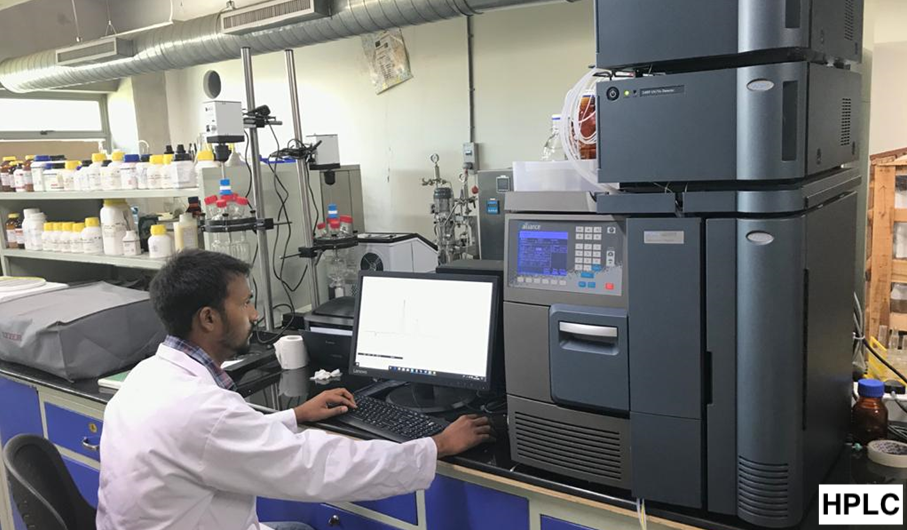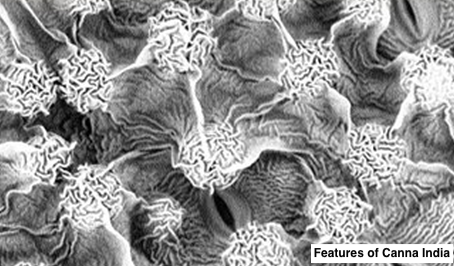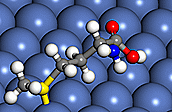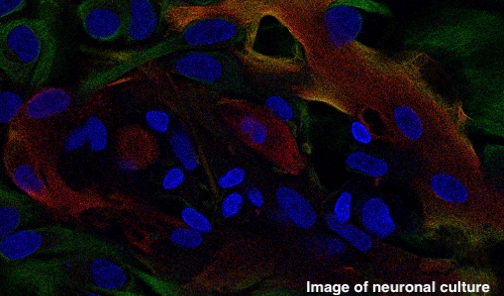




Advanced Materials
Advanced materials are the foundation of all emerging Science and technologies, be it nano or bio. Advanced materials research in Chemical Engineering @ IIT Hyderabad is driven towards an interface between physics, chemistry, life sciences and engineering sciences. Our faculty members are involved in multi-disciplinary and translational research in the broad areas of advanced nano- and bio-materials with equal emphasis on fundamentals and applications across wide spectrum including but not limited to energy storage, environment, tissue engineering, drug delivery, and sensors. We also work with biomimetics and bio-inspired approaches to design and engineer our materials.
Artificial Intelligence and Machine Learning in Chemical Engineering.
Efforts have been taken up about development and enhancement of AI and ML based tools in the areas of process control, uncertainty modelling, optimization under uncertainty, supply chain planning and scheduling and data analysis. Availability of data from various chemical and biological processes further fueled the interest to decipher hidden information using AI and ML tools. Research applications expand in various domains such as offline / online surrogate optimization (optimization of computationally expensive process models), modeling of dynamic systems (recurrent and long short term memory networks), hyper-parameter optimization of Deep Neural Network, fuzzy clustering of time (in)variant data, learning of distributions in data using Generative Adversarial Networks, learning from images using Convolutional Neural Networks, genetic algorithms etc.
Bio-engineering and Biotechnology.
Chemical engineering provides a uniquely integrated multiscale perspective to tackle problems of interest in modern biology. The Bioengineering and Biotechnology theme in the department is interested in applying chemical engineering principles to understand and control a wide variety of biological systems and processes. Specific areas of interest include the development of new materials and methods to achieve controlled and targeted release of drugs, investigation of mechanisms that govern inter-cellular interactions in health and disease, pilot-scale production of enzymes and industrial biochemicals, fabrication of biomaterials to direct mammalian cell fate for tissue regeneration, study of biomacromolecular self-assembly and in-depth examination of structure-property-function relationships in biological systems.
Mineral Processing
The experimental and theoretical research performed in the area of particulate technology covers both mineral processing and separation processes. The nature of the research is both fundamental and applied. The specific focus of our research is oriented towards the development and validation of multi-phase CFD models for hydrodynamics of bubble columns, slurry columns, circulating fluidized bed, internally circulating fluidized bed and various mineral processing separators such as dense medium cyclones (DMC), hydrocyclones (HC), feed slurry distributors and flotation devices. We also work on DEM and CFD-DEM coupling for the modelling of granular flows in fluidized bed and tumbling mills. Multi-phase flow experimentation is also carried out in our labs where we adopt various experimental techniques (non-invasive and invasive); PDPA for the particle flow field, Electrical tomography techniques (ERT & ECVT) used for the measurement of dispersed phase concentration, PEPT (Positron emission particle tracking) @ University of Cape Town for particle flow dynamics, optical fiber probe for solids hold-up and velocity inside a fluidized bed/separator. Recently, we have also started working on waste utilization/recovery of mineral matter from low grade minerals such as iron ore/iron ore slimes, chromite ores and high ash and high NGM coals through innovative/novel mineral beneficiation research that yield into novel design concepts especially for mineral industry.
Computational and Systems Biology
The Computational and Systems biology theme in the department uses computational and mathematical modelling tools to generate an integrated understanding of biological processes and phenomena. Specific research interests include modelling of the biophysical mechanisms of antibiotic resistance in bacterial biofilms, simulation and modelling of mechanics of the cardiovascular system, biomimetics and genome organization.
Energy Conversion and Storage
The ever increasing energy demand in a global scenario requires the exploration of new and novel energy technologies. At IIT-Hyderabad, we are focused on both energy conversion and storage. Our expertise spans various themes including but not limited to fuel cells, lithium ion batteries, lithium sulfur batteries, supercapacitors, photoelectrochemical water splitting, solar fuels and carbon sequestration, wind farm layout optimization and control. We work on the aspects of advanced materials development (nanostructured hierarchical carbons, metal oxides, metal sulfides, metal selenides and composites) as well as fundamental understanding of the underlying principles across all the themes. We are also quite involved in transforming lab scale research to societal needs by the way of device development/manufacturing.
Fluid Mechanics
We conduct fundamental and applied fluid mechanics research using analytical, computational fluid dynamics and experimental techniques. A large variety of problems have been considered ranging from laminar micro-scale systems (e.g. microfluidics, flows in biological systems) to highly turbulent large scale systems (e.g. mineral processing, atmospheric science). The associated challenges come from non-Newtonian rheology, complex geometry or from the flow itself, such as turbulence, multiphase systems. The cutting-edge interdisciplinary research of our department facilities natural collaboration inside and across various departments at IIT Hyderabad and also outside. In addition to high-performance computing, we have state-of-the-art experimental facilities which include Particle Image Velocimetry (PIV), Laser Doppler Anemometry (LDA), High-Speed Camera, Infrared Thermal Imaging System and Rheometer to name a few. Last but not the least, our fluid dynamics research works have not only been published in high quality reputed journals but also recognised by several industries, whose details can be found in our webpage.
Heterogeneous Catalysis
We synthesize a wide range of catalysts – supported metal/metal oxide, solid-acids such as (modified) zeolite, silica-alumina, sulfonic acid-functionalized material, mixed metal oxide etc., and mesoporous materials. We work on structure-activity correlation and catalyst deactivation for various reactions. Our works include hydrodeoxygenation of vegetable oil, fatty acids, lignin and various model compounds, steam/dry reforming of biogas and oxygenated compounds, and bio-butanol to gasoline, butylenes and aromatics.
Polymer Science and Engineering
We work on fundamentals and applications of polymers, interfacial phenomena and statistical thermodynamics to aid development of materials and processes for chemical engineering as well as healthcare industry. Research spans molecular simulations to detailed experimental investigations in order to capture multi-scale interactions in terms of both length and time scales. Specific research interests include controlled drug release, lignin depolymerization, experimental and theoretical investigation of polyelectrolytes and polyampholyte systems, theory of polymer brushes, modeling and simulation of polymeric systems and structure-property relations in polymer-particle hybrid networks.
Process Systems Engineering
A typical chemical plant consists of multiple unit operations. First principle modelling and control of all these processes is a highly challenging task. However, the process industries of today record gigabytes of data per day. Leveraging this, data based dynamic models and the corresponding algorithms are developed for chemical processes from the recorded plant input-output data. Grey box models explicitly taking into account the stochastic nature of the processes are used with significant focus on their theoretical properties/guarantees. Subsequent to modelling, focus is also on control of process systems using estimation based methods and their guarantees. Using technologies such as compressive sensing/sparse optimization, solutions to inverse problems, fundamental problems ranging from parameter estimation in ordinary differential equations, partial differential equations (as applied to Electric Resistance Tomography), topology estimation in networked systems etc. are also tackled
Techno-economic analysis
We perform the conceptual process design using Aspen Plus. We also do pinch analysis to obtain the energy targets and maximum heat recovery. Based on these information, we design the heat exchange network and evaluate the economics of the process to obtain manufacturing cost. We further do discounted cash flow analysis to determine the minimum selling price.
DFT & MD
Understanding the physical and chemical properties of the catalytic reactions is important for chemical engineering. Such insights are provided by quantum mechanical methods based on electronic structure calculations such as Density Functional Theory (DFT) simulations. In particular DFT simulations provides mechanistic insights into a catalytic reaction, predicts rates and can be used for the insilico screening and rational design of the catalysts. DFT simulations were used by us in an effective design of steps and terrace sites of the metal catalysts for guiding different types of reactions (ring-opening and decarboxylation, hydrogenation and hydrodeoxygenation) which forms an effective strategy in the catalytic transformation of biorenewable substrates.